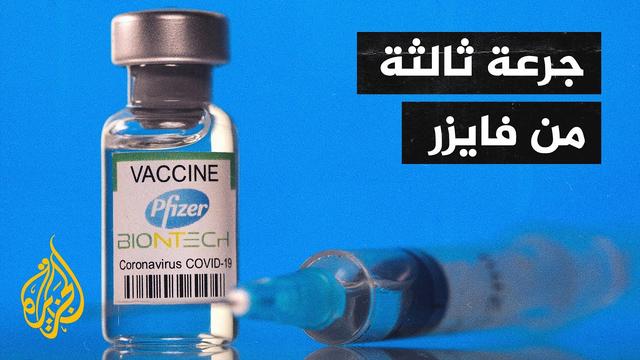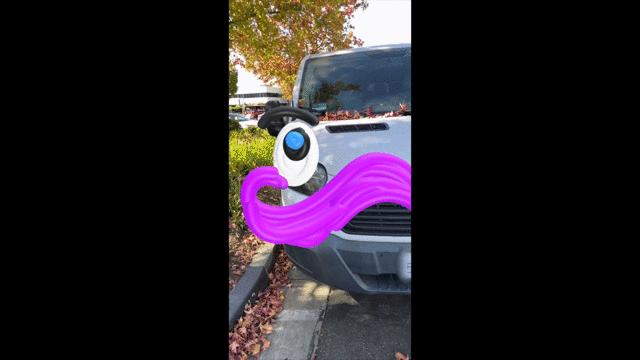Do you have to get a third dose of the Corona vaccine?There is one problem
What are the positives of obtaining a third dose of the new Corona virus vaccine "Kovid-19"? What are the most needy cases of this dose? What are the negatives in return? What is the position of the World Health Organization? The answers in this comprehensive report.
During the last period, many countries have started plans to give reinforced doses from the Corona vaccine. For example, the Jordanian Ministry of Health begins today, Sunday, to give a third reinforcement dose to immunodeficiency people.
The ministry said - in a statement - that people who want to receive the reinforced dose must bring what is proven.
The cases due to the reinforced dose include cancer patients who take treatment, organ transplant patients, stem cell transplant patients during the past two years, advanced or non -processed HIV "AIDS" infections, patients who take cortisone in large quantities or immunodeficiency medications, and washing patientsKidney, autoimmune diseases, such as pulmonary arthritis, lupus, sclerosis, psoriasis, type 1 sugar, Gilan Barry syndrome, as well as some genetic diseases such as Down syndrome.
In Germany, many states began to offer to give a third dose of Corona vaccination to people in need of care, over the age of 80 years and immunity, if at least 6 months have passed since the last dose they took;Because the effect of the vaccine takes a remarkable retreat after this period.
In Italy, Health Secretary Roberto Sporaza said last Thursday that the government intends to start giving a third dose of anti-Coffee-19s later this month for people most at risk.
"We will start vaccinating the most vulnerable people at a third dose in September," Spiranza told reporters - standing next to Prime Minister Mario Draghi.
What are the positives of obtaining a third dose?
1- It helps those who suffer from immunity
According to initial data from Octave Trial, all people who have immunodeficiency "Immunosupressed" have an immune response after two doses, but about 40% of people have antibody levels were low, although it was not clearAfter that to what extent this might affect their protection from the Corona virus, according to a report in the BMJ Medical Magazine.

Accordingly, the JCVI (JCVI) in the United Kingdom recommended people with severe weakness in the immune system to obtain a third dose of the vaccine, as part of the basic vaccination schedule against Kovid-19.
2- It may help raise immunity after its decline
According to research data, it appears that immunity with vaccines is declining over time;According to British researchers, the protection provided by the receiving of two doses of "Pfizer-Biontech" and "Oxford-Atrazeneca" begin to fade within 6 months, indicating the need to receive activation doses.
The analysis of data collected by the "Zoe Kovid" application company concluded that the effectiveness of the Pfizer vaccine decreased from 88% after a month from receiving the second dose to 74% after 5 to 6 months.
As for the Astrazzinica vaccine, the effectiveness decreased from 77% to 67% after 4 to 5 months.
The study was based on the data of more than a million users of the application, and compared the injuries announced by their owners who received the vaccine and injuries between a group that did not receive the vaccine.
3- Helping to address the new breeds of the Corona virus
With the emergence of new strains from Corona such as "Delta" and "Mo", there is fear that the immunity will decline over time will reduce the effectiveness of the vaccine, so the reinforced dose may help stimulate immunity against the new strains.
Should the third dose of the vaccine be of the same type as the first two doses?
If possible, yes.And according to Professor Emily Landon told the University of Chicago.And the American Centers for Disease Control and Prevention (CDC) recommends that enhanced doses coincide with the original MRNA (MRNA) vaccines that people received earlier this year.This subsequent dose should be given at least 28 days after the second dose of the vaccine.And if you are not able to find a matching dose of the vaccine, it will be possible to obtain another type.
What are the negative aspects of a third dose?
There is one problem, which is related to countries, not the person who receives the vaccine;The Scientific Health Organization is afraid that the start of countries to give a third dose of the Corona vaccine to its citizens leads to an inconsistency in the distribution of vaccines.
"Although hundreds of millions of people are waiting for the first dose, some rich countries have moved to providing reinforced doses," said Tedros Adhanum, General Manager of the World Health Organization.
"Until now, more than 4 billion vaccine doses have been used in the world. More than 80% of these doses have been accounted for by high -income countries and medium -income countries of the upper chip, even if the inhabitants of these countries represent less than half of the world's population."
"I understand the interest of all governments in protecting their people from the Delta museum, but we cannot accept the continuation of the countries that used most global supplies of vaccines to use more of them, while the weakest people in the world remain without protection," he said.
"In late May, I called for global support for the relentless effort towards achieving the September goal, in order to enable each country to vaccinate at least 10% of its population by the end of September (current)," Adhanum said.
He added that this was not achieved, as in exchange for the use of high -income countries - until the date of media briefing - about 100 doses per 100 people, the low -income countries were unable to use more than 1.5 doses per 100 people, due to the lack of supplies.
Adhanum called for at least to stop the use of reinforced doses until the end of September, to enable at least 10% of the population of each country to obtain vaccination.










